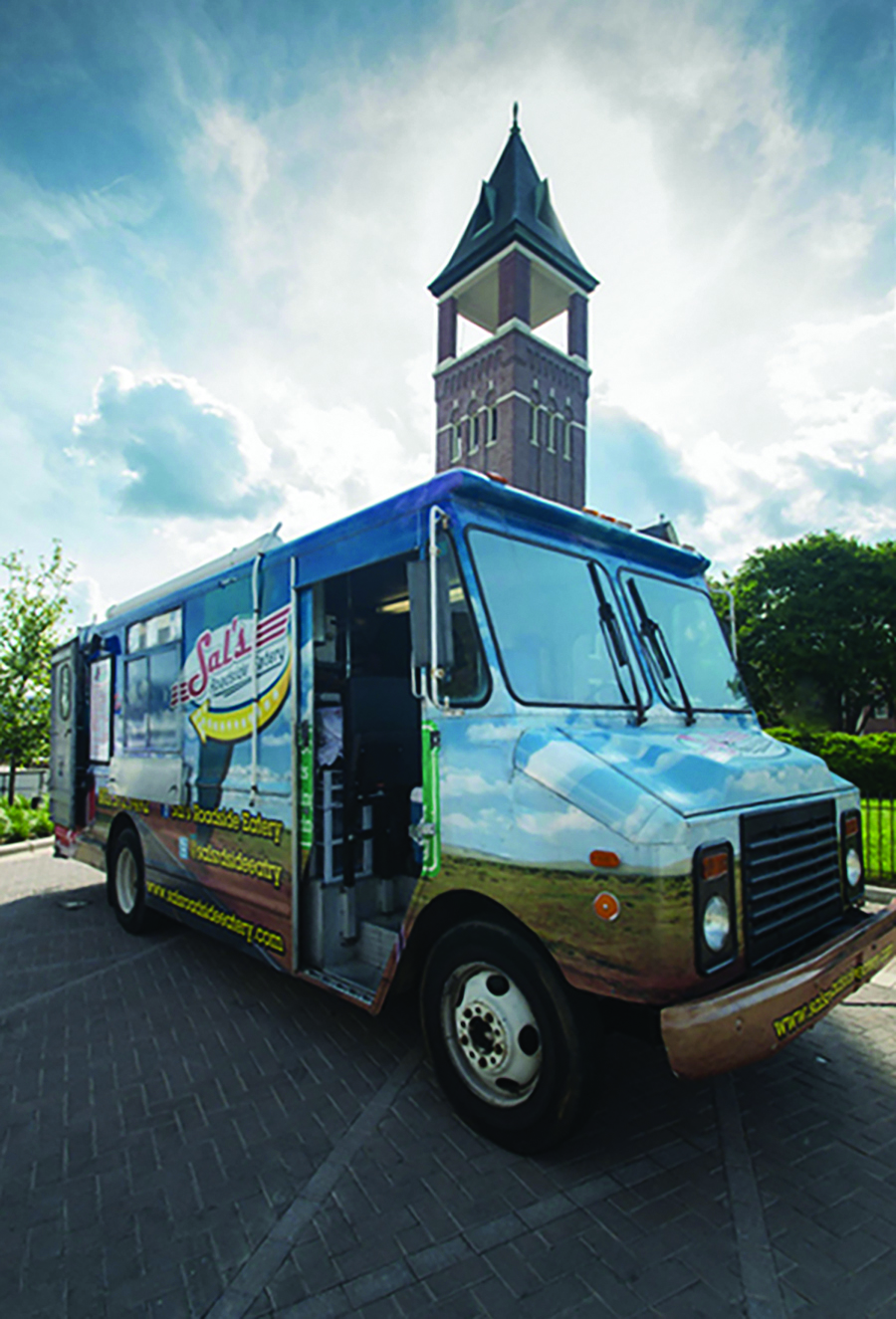After the City of Rock Hill completed Fountain Park and instituted Food Truck Friday, Project Specialist Martin Lane said the city did not know what to expect. It had put together about eight food trucks and expected maybe 600 or 700 people to attend. Instead, 4,000 came.
“It was crazy,” he said. “We knew then that we had to expand on that.”
Food Truck Friday takes place the third Friday of every month in the summertime, bringing together food trucks and local restaurants with children’s activities and live music. The large event involves several street closures around the park.
Lane presented recently, along with Beaufort County Business License Director Edra Stephens, on the process of managing compliance and licensing for food trucks to the Joint Academy of the SC Municipal Finance Officers, Clerks and Treasurers Association and the SC Business Licensing Officials Association.

Food Truck Friday’s have taken place in Rock Hill’s Fountain Park since 2015.
Photos: City of Rock Hill.

They advocated maintaining a checklist for food truck business owners to ensure the owners understand what they need in terms of inspections and other regulations.
A handout from the City of Rock Hill, for example, notes the need for SC Department of Health and Environmental Control and city approval, business licenses and food service permits. It also describes relevant zoning regulations on when and where the city allows food trucks at special events, breweries and retailers.
The Beaufort County website, meanwhile, lists all of the county’s requirements for food trucks. Beyond items like licensing, hospitality tax remittance and permissions from the property owner, it also notes that a photo of the truck is needed, that the truck’s location can’t create traffic or safety problems, and it cannot be left overnight. The food truck owner is responsible for identifying restroom locations for employees, and for removing garbage and litter. The website also provides maps of areas in the county zoned for food trucks.
Lane and Stephens also advocated maintaining checklists for the licensing staff to keep them from missing items like lease agreements for the food truck’s location.
Making the process as easy as possible can lead to food trucks coming back, the presenters said. Stephens described the importance of developing and maintaining good working relationships with business owners.
“You’re going to have a relationship with them, one way or the other,” she said.
Lane described the process of learning about all the aspects of handling food trucks, from the need for a South Carolina Retail License to liability insurance — food truck owners can become confused over why their vehicle insurance is not the same as liability insurance — and the need to avoid discharging greasy water down drains and clogging them. Rock Hill has a fats, oil and grease discharge permit application for food truck vendors. The overall process, he said, is designed to focus on many types of concerns, from liability to environmental to safety, given that food trucks come with the hazards of food preparation and fire safety.
The presenters noted that working with food trucks can create concerns about the trucks serving as competition for brick-and-mortar restaurants, but that is not necessarily the case. At Rock Hill’s Food Truck Fridays, Lane said, the size of the event meant an overflow of crowds, with some of the people coming to the park before walking to nearby restaurants.
“What we found,” he said, “is that the restaurants actually benefitted from these events.”
